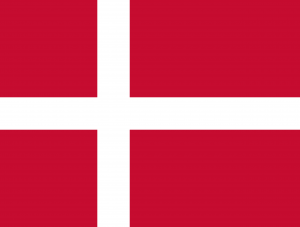Language/Danish/Vocabulary/Modes-of-Transportation
| ◀️ Modal Verbs — Previous Lesson | Next Lesson — Travel Vocabulary ▶️ |
Introduction[edit | edit source]
If you plan on traveling to Denmark, it's important to know the Danish words for different modes of transportation. In this lesson, we will cover the most common modes of transportation in Denmark, including how to ask for directions and buy tickets. By the end of this lesson, you will be able to confidently navigate the Danish transportation system.
Take some time to dive into these other pages after completing this lesson: Science and Technology & Health.
Modes of Transportation[edit | edit source]
Here are the most common modes of transportation in Denmark:
- bil (car)
- bus (bus)
- tog (train)
- cykel (bicycle)
- færge (ferry)
Now let's take a closer look at each mode of transportation.
Bil (Car)[edit | edit source]
If you plan on driving in Denmark, you'll need to know a few key Danish words related to cars:
| Danish | Pronunciation | English |
|---|---|---|
| bil | beel | car |
| benzin | ben-zeen | gasoline |
| biludlejning | beel-oo-lye-ning | car rental |
| vej | vye | road |
| vejkort | vye-kort | road map |
| benzinmåler | ben-zeen-moh-ler | fuel gauge |
Here are some example sentences using these words:
- Jeg har en bil. (I have a car.)
- Vi har brug for benzin. (We need gasoline.)
- Jeg har lejet en bil i lufthavnen. (I've rented a car at the airport.)
- Hvordan kommer jeg til motorvejen? (How do I get to the highway?)
Bus (Bus)[edit | edit source]
Buses are a common mode of transportation in Denmark, especially in urban areas. Here are some key words related to buses:
| Danish | Pronunciation | English |
|---|---|---|
| bus | boos | bus |
| busstoppested | boos-stop-uh-sted | bus stop |
| billet | bee-let | ticket |
| billetsalg | bee-let-sale | ticket sales |
| busskort | boos-kort | bus card |
| morgenbus | more-gen-boos | morning bus |
Here are some example sentences using these words:
- Jeg tager bussen til arbejde hver dag. (I take the bus to work every day.)
- Er dette busstoppestedet til centrum? (Is this the bus stop for downtown?)
- Jeg vil gerne købe en returbillet. (I would like to buy a round-trip ticket.)
- Kan man købe billetter hos chaufføren? (Can you buy tickets from the driver?)
Tog (Train)[edit | edit source]
Another popular mode of transportation in Denmark is trains. Here are some key words related to trains:
| Danish | Pronunciation | English |
|---|---|---|
| tog | toh | train |
| station | staht-yohn | station |
| billetautomat | bee-let-ow-toh-maht | ticket machine |
| pladsbillet | plas-bee-let | reserved seat |
| rejsekort | rye-se-kort | travel card |
Other Lessons[edit | edit source]
- Clothes
- Animal
- Things in Danish
- Drinks
- Ordinal Numbers in Danish
- Feelings and Emotions
- Numbers 1 100
- Colors
- Seasons
- Adjectives in Danish
Sources[edit | edit source]
| ◀️ Modal Verbs — Previous Lesson | Next Lesson — Travel Vocabulary ▶️ |

